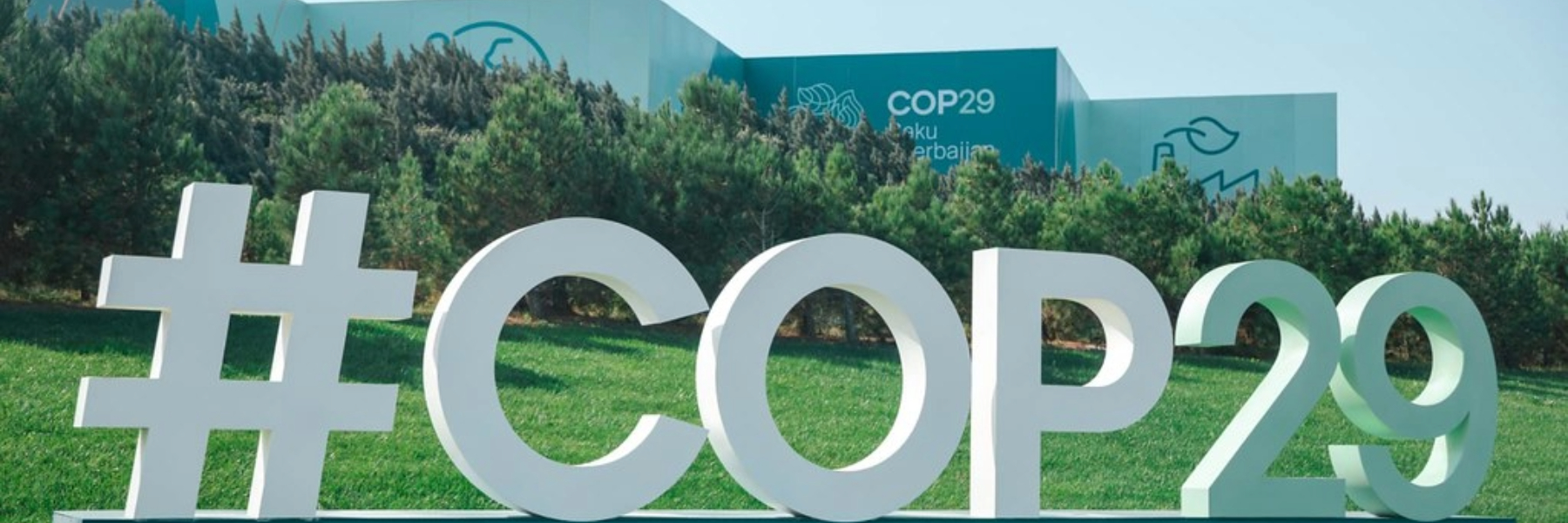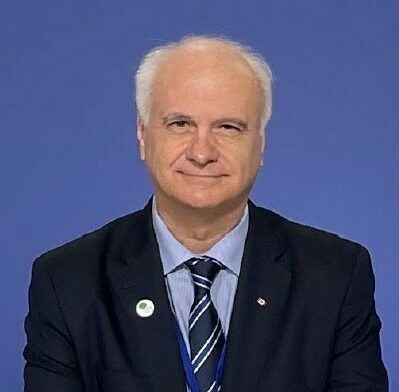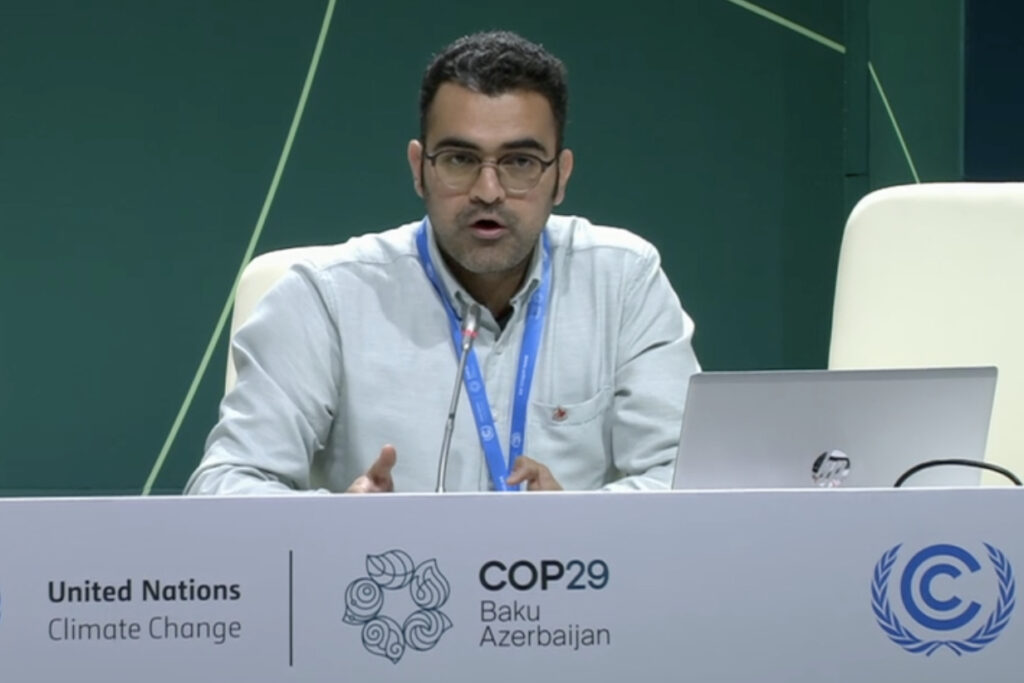
York University has been promoting the essential role higher education plays in addressing climate challenges at the 29th Conference of the Parties to the United Nations Framework Convention on Climate Change (COP29), taking place in Baku, Azerbaijan from Nov. 12 to 22. Nearly 200 nations gathered at the annual meeting, focused this year on raising hundreds of billions of dollars to fund a global transition to cleaner energy sources and limit the climate damage caused by carbon emissions.
A delegation from CIFAL York attended the event, taking part in a United Nations Institute for Training & Research (UNITAR) panel on how academic institutions are leading in climate-related innovation and impact through sustainability education and research. CIFAL York is part of UNITAR’s global network of training centres for knowledge exchange and capacity building among government officials, the private sector, academia and civil society.
The event included a news conference for this year's United Nations Framework Convention on Climate Change (UNFCCC) Youth Climate Report, which highlighted the importance of empowering youth to have voices in climate reporting, as well as CIFAL York’s strategic approaches to environmental education and awareness.
“We’re thrilled to be among world leaders at COP29 advancing solutions to global challenges like climate change,” said David Peters, York University’s interim provost and vice-president academic. “Through our partnerships, research and academic innovation, we’re bringing positive change to communities around the world.”
The York U community is working together to advance the United Nations Sustainable Development Goals (UN SDGs), and the University’s achievements were recently recognized in the 2023 Times Higher Education Impact Rankings. York is positioned among the top 40 universities globally and in the top 100 in nine SDGs.


CIFAL York was represented at COP29 by Mark Terry's ongoing research project, the Youth Climate Report – a partner program of the UNFCCC – and his graduate student, Peyman Naeemi. Terry is a professor in York’s Department of Communication & Media Studies and the executive director of the UNFCCC's Youth Climate Report.
“York’s contributions at the COP put a spotlight on the important role universities play in education and youth engagement as we confront the world’s big environmental issues,” said Terry. “Universities are at their best when they leverage the innovation they drive in education and research to make communities and the world around them better.”
CIFAL York’s leadership in environmental education was also underscored by the practical, hands-on approaches it promotes, which have become benchmarks for effective communication in the field. Its innovative use of tools such as virtual reality and drone-based programs exemplify its commitment to immersive learning experiences that foster environmental awareness and active community participation. These transformative methodologies are part of CIFAL York’s broader efforts to engage and empower individuals to confront pressing climate challenges through accessible and impactful education.
Naeemi, a PhD student at York U who supports the creation of training tools and products as CIFAL York’s multimedia unit lead, said it was “a great honour” to debut the film he directed at COP29’s Canada Pavilion and engage audiences in a compelling narrative about the effects of climate change on wildlife.
His animated film, Jonathan, is a symbolic story underscoring the urgent need for environmental consciousness by following a bird who rallies animals to protest and confront the ongoing climate challenges.
“Debuting my film to an audience of people from around the world working together toward the common goal of tackling climate change was a remarkable opportunity to leverage filmmaking for education,” said Naeemi. “This kind of creative storytelling is one of the ways York is fostering an informed and proactive community in the fight against climate change.”
Learn more about York University’s progress on the UN SDGs by visiting York’s SDG Week website and following the University on social media.
